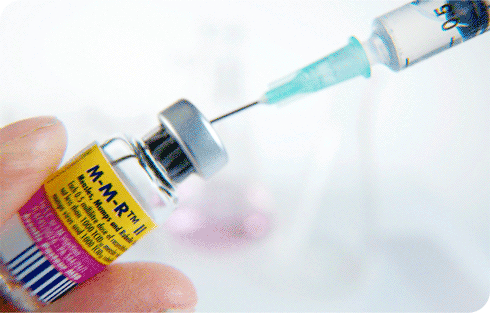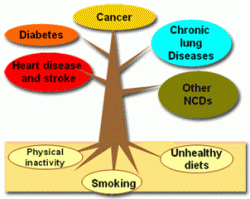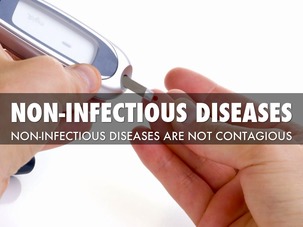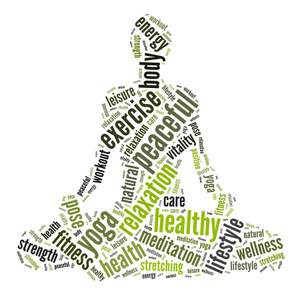(Pfizerlife.co.uk, 2015) (Huttenhower.sph.harvard.edu, 2013)
Preventing infectious illnesses
Infectious illnesses can present a big risk to our health. That is why is important to try to prevent them by having a healthy lifestyle and making sure that we get vaccinated against certain diseases.
Infectious illnesses can present a big risk to our health. That is why is important to try to prevent them by having a healthy lifestyle and making sure that we get vaccinated against certain diseases.
- Having a healthy lifestyle would include having a good hygiene, following a healthy diet, avoiding any drug use, including medication that is not prescribed by a doctor, getting enough rest, having regular medical check ups, etc. All these habits will boost your immune system and keep it in good shape.
- Vaccination consists of introducing dead, weakened or partially weakened microbes into a healthy organism so the healthy organism will produce antibodies against them. If a person gets in contact with these microbes again the organism will ‘remember’ (acquired immunity) them and produce specific defences fairly quickly which will stop the infection from happening.
Read up on the subject here and then try this quiz,
How to cure infectious illnesses
The most important treatments include:
Serum therapy or serotherapy: Based on the injection of antitoxins or serum containing specific antibodies which have been produced by another person or animal to an ill patient who may need them quickly, for example in the case of having tetanus or rabies.
Drug therapy: Based on the administration of chemical substances or medicines. These are drugs that act against microbes. The most important of those are antibiotics.
Antibiotics are antimicrobial substances produced naturally or artificially which is only active against bacteria and some type of fungi. They should never be taken for a viral infection. It is also important to remember that you should not take them unless it’s necessary and prescribed by a doctor as bacteria become resistant to them, which makes them less effective or even useless. It is also important to follow the doctor’s prescription properly in terms of (with regard to) dosage and duration of the treatment in order to avoid increasing the resistance of bacteria to them.
(C-hubonline.org, 2012) (Haikudeck.com, 2015)
Non-infectious diseases
Diseases that originate by other causes that are not micro-organisms. These diseases usually have more than one cause, ranging from the environment to the person´s genes and lifestyle. The most important are:
* Diseases that affect the normal functioning of systems or apparatus, such as coronary heart diseases or respiratory diseases.
*Traumatic diseases, such as sport injuries, or domestic, traffic or work accidents.
* Endocrine and metabolic diseases: these are caused by excessive or deficient secretion of a hormone or by malfunctions in the metabolic reactions within the body’s cells. Examples include some forms of obesity and diabetes.
* Deficiency diseases: a poor diet may deprive the body of some essential substances; such as anaemia (iron deficiency) or goitre (iodine deficiency).
* Psychological / mental disorders: changes in the working of the brain may lead to abnormal behavior, such as. Schizophrenia, depression, anorexia and bulimia.
* Genetic diseases which are present at birth and are caused, at least in part, by a genetic disorder (the affected person’s genes), e.g. certain types of blindness. Those diseases caused by a genetic defect that a person inherits from their parents are called hereditary diseases. Some of this type of diseases can be limited or prevented by adopting certain healthy habits.
* Cancer: It is a type of disease where a group of cells show uncontrolled and rapid division, invading and destructing other tissues, and sometimes metastasise (spread to other locations in the body via lymph or blood).giving rise to a mass of abnormal cells known as a tumour, that invade and kill other cells.
There are 2 types of tumours:
To prevent cancer, here is some advice for you to take:
-Have healthy life habits.
-When you reach a certain age, ensure you have regular medical check-ups.
Diseases that originate by other causes that are not micro-organisms. These diseases usually have more than one cause, ranging from the environment to the person´s genes and lifestyle. The most important are:
* Diseases that affect the normal functioning of systems or apparatus, such as coronary heart diseases or respiratory diseases.
*Traumatic diseases, such as sport injuries, or domestic, traffic or work accidents.
* Endocrine and metabolic diseases: these are caused by excessive or deficient secretion of a hormone or by malfunctions in the metabolic reactions within the body’s cells. Examples include some forms of obesity and diabetes.
* Deficiency diseases: a poor diet may deprive the body of some essential substances; such as anaemia (iron deficiency) or goitre (iodine deficiency).
* Psychological / mental disorders: changes in the working of the brain may lead to abnormal behavior, such as. Schizophrenia, depression, anorexia and bulimia.
* Genetic diseases which are present at birth and are caused, at least in part, by a genetic disorder (the affected person’s genes), e.g. certain types of blindness. Those diseases caused by a genetic defect that a person inherits from their parents are called hereditary diseases. Some of this type of diseases can be limited or prevented by adopting certain healthy habits.
* Cancer: It is a type of disease where a group of cells show uncontrolled and rapid division, invading and destructing other tissues, and sometimes metastasise (spread to other locations in the body via lymph or blood).giving rise to a mass of abnormal cells known as a tumour, that invade and kill other cells.
There are 2 types of tumours:
- Benign tumours: which are self-limited, and do not invade or metastasise.
- Malignant tumour or cancer: when the cells divide with no limit and extend to other organs (metastasis).
To prevent cancer, here is some advice for you to take:
-Have healthy life habits.
-When you reach a certain age, ensure you have regular medical check-ups.
(Samantha, 2012)
How to prevent non-infectious illnesses.
As with infectious diseases having a healthy lifestyle will help you prevent non-infectious diseases. Some of these are stated below:
* Do not smoke. Do not do drugs (alcohol is a drug).
* Avoid excessive sun exposure without protection.
* Have a healthy diet.
* Have regular medical check-ups after you reach middle age.
* Regular exercise.
* Get enough rest. Avoid too much stress.
* Always follow safety instructions.
*Avoid polluted environments.
As with infectious diseases having a healthy lifestyle will help you prevent non-infectious diseases. Some of these are stated below:
* Do not smoke. Do not do drugs (alcohol is a drug).
* Avoid excessive sun exposure without protection.
* Have a healthy diet.
* Have regular medical check-ups after you reach middle age.
* Regular exercise.
* Get enough rest. Avoid too much stress.
* Always follow safety instructions.
*Avoid polluted environments.
Revise!
Check your knowledge by taking this quiz.
Task 1XX: Research diseases that are directly related to an unhealthy diet and summarise your research with in-text referencing in your NSD.
Extension: Suggest why we need to eat.
Extension: Suggest why we need to eat.






